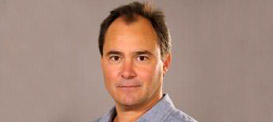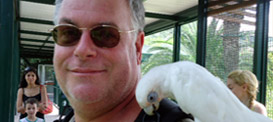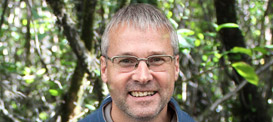New article on the Cultural Dimensions of Araucaria forests
Upcoming fieldseason at the Abreu and Garcia site
Upcoming fieldseason at the Abreu and Garcia site. Estão abertas as inscrições de voluntários para a temporada de campo de Março/Abril de 2015.
More info…
Project launched at USP with Exeter Vice-chancellor visit
Towards a funerary archaeolaogy of the southern Je
INQUA
International Union for Quaternary Research – INQUA
More info…
More Papers
Iriarte, J., J. C. Gillam and O. Marozzi. 2008. ‘Monumental burials and memorial feasting: an example from the southern Brazilian highlands’. Antiquity 82:947-961. [Abstract]
Iriarte, J. and H. Behling. 2007. ‘The expansion of Araucaria forest in the southern Brazilian highlands during the last 4000 years and its implications for the development of the Taquara/Itararé tradition’.Environmental Archaeology 12:115-127.
MaDu, G., DeBlasis, P., Fish, S. K. and Fish, P. 2008 . ‘Sambaqui (Shell Mound) Societies of Coastal Brazil’ in H. Silverman and W. H. Isbell (eds.) Handbook of South American Archaeology. Springer: New York, pp. 319-335.
Fish, P. R., Fish, S. K., DeBlasis, P. and Gaspar, M. D. 2013 ‘Monumental Shell Mounds as Persistent Places in Southern Coastal Brazil’ in V. D. Thompson and J. C. Waggoner Jr. (eds.) The Archaeology and Historical Ecology of Small Scale Economies. Gainesville: Univ. Press of Florida, pp. 120-140.
Colonese, A., Collins, M., Lucquin, M., Eustace, M., Saul, H., Hancock, Y., Ponzoni, R. A. R., Coulthard, D., DeBlasis, P., Figuti, L., Wesolowski, V., Plens, C., Eggers, S., Farias, D., Gledhill, A. and Craig, O., 2014. ‘Dietary variability among South American moundbuilders: isotopic and molecular perspectives from Brazilian sambaquis’. PlosOne 9(4):1-13.
South American Archaeology seminar
South American Archaeology seminar, UCL, London (UK), 6 December 2014
More info…
José Iriarte

José Iriarte is Associate Professor at the Department of Archaeology, University of Exeter. He is an archaeologist and archaeobotanist with a strong track record of research on human environmental interactions, the development of agricultural economies and the rise of complex societies in Latin America. He has extensive experience in initiating, directing and participating in a wide range of international multidisciplinary projects in Argentina, Bolivia, Brazil, Colombia, Peru, French Guiana, Mexico and Uruguay. Professor Iriarte has developed innovative multi-proxy, cross-disciplinary approaches integrating archaeology, palaeoecology, soil science, and modern ecology, which has allowed him to explore human environmental interactions in depth and have provided clearer evidence on the timing and nature of human impact on tropical and subtropical ecosystems. He has developed a strong research group at the Laboratory of Archaeobotany and Palaeoecology investigating coupled human and natural systems in Latin America. Read his full CV on his web-page: http://www.joseiriartearchaeology.net/pages/cv).
Paulo DeBlasis

Born in São Paulo, Paulo DeBlasis obtained his Master’s degree in Social Anthropology studying hunter-gatherer societies from southern Brazil, and his doctoral research, defended in 1996, approaches the spatial and cultural features of different occupations in a deep vertical study of a unique hinterland basin. He conducted research on riverine and coastal shellmounds (sambaquis) for more than two decades, while also developed research on hunter-gatherer occupations and rock art on several locations throughout Brazilian Central Plateau. Throughout his career, he advocated the fundamental importance of territorial approaches and landscape studies, successfully integrating
cross-disciplinary methods and researchers from different areas, such as geology and geophysics, into his research, particularly as regards the understanding of the monumental sambaquis from the southern Atlantic shore. He advises students throughout the country on subjects ranging from rock art to heritage, ceramist societies, funerary rituals and art, settlement patterns, lithic studies and hunters and gatherers societies.
Frank Mayle

Frank is a tropical palaeoecologist interested in the long-term dynamics and interactions between Neotropical ecosystems, climate change, and human land use over centennial to multi-millennial timescales. His lab specialises in the analysis of fossil pollen and charcoal from radiocarbon-dated lake and bog sediments to reconstruct past environmental change. His first coring expedition to South America was in 1995 in a remote, but spectacular, corner of Amazonian Bolivia – Noel Kempff Mercado National Park – which sparked his long-term interest in Quaternary forest-savanna dynamics. Since then, he has been fortunate enough to expand his fieldwork across Amazonian Bolivia – via close collaboration with botanists at the Noel Kempff Mercado Natural History Museum of Santa Cruz. Ongoing collaboration with archaeologists, palaeoenvironmental scientists, and modellers – at both UK and Brazilian institutions – has enabled him to expand his research across much of Brazil, encompassing both Amazonian and Atlantic Forest ecosystems. His research has been funded by NERC, AHRC, and The Leverhulme Trust in the UK, as well as FAPESP and CNPq in Brazil, and National Geographic in the US.
He has a BSc in Botany from the University of Reading (1986), an MSc in Palynology from the University of Sheffield (1988), and a PhD in Palaeoecology from the University of New Brunswick, Canada (1993). He held a postdoctoral position at Royal Holloway, University of London (1993-94) and took up his first academic post at the University of Leicester in 1994, before moving to the University of Edinburgh in 2004 and returning full circle to the University of Reading in 2013, where he is currently Professor in Tropical Paleoecology.
Jê Landscapes of Southern Brazil | Privacy Policy
